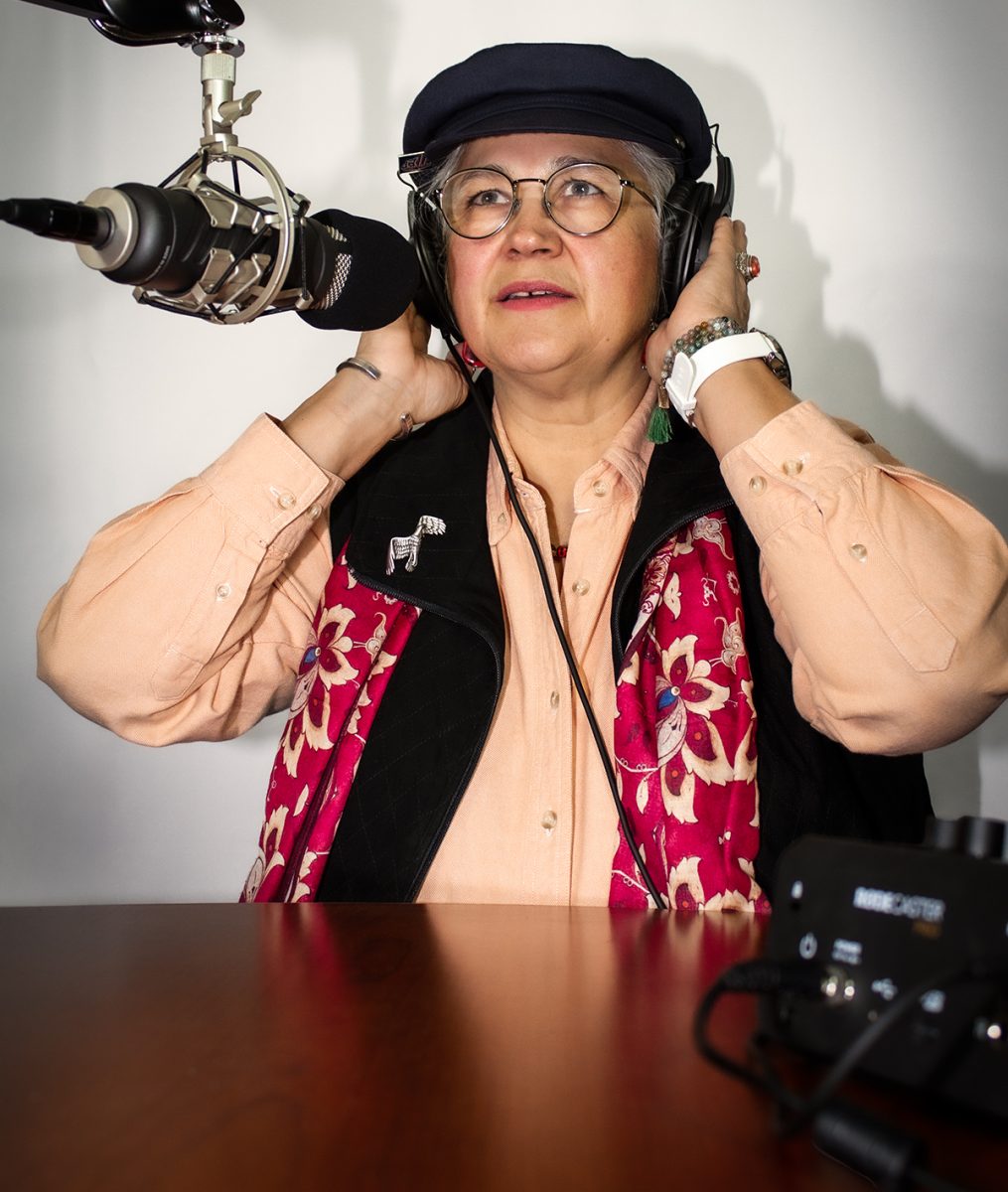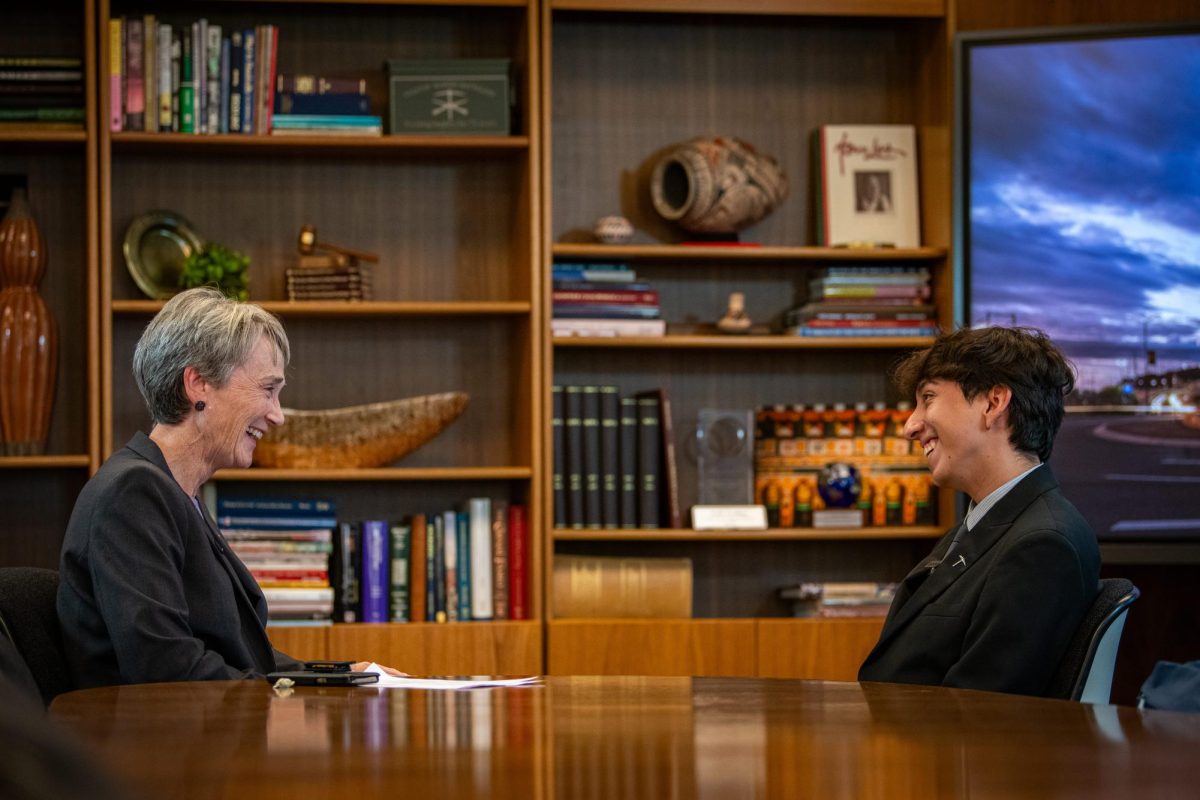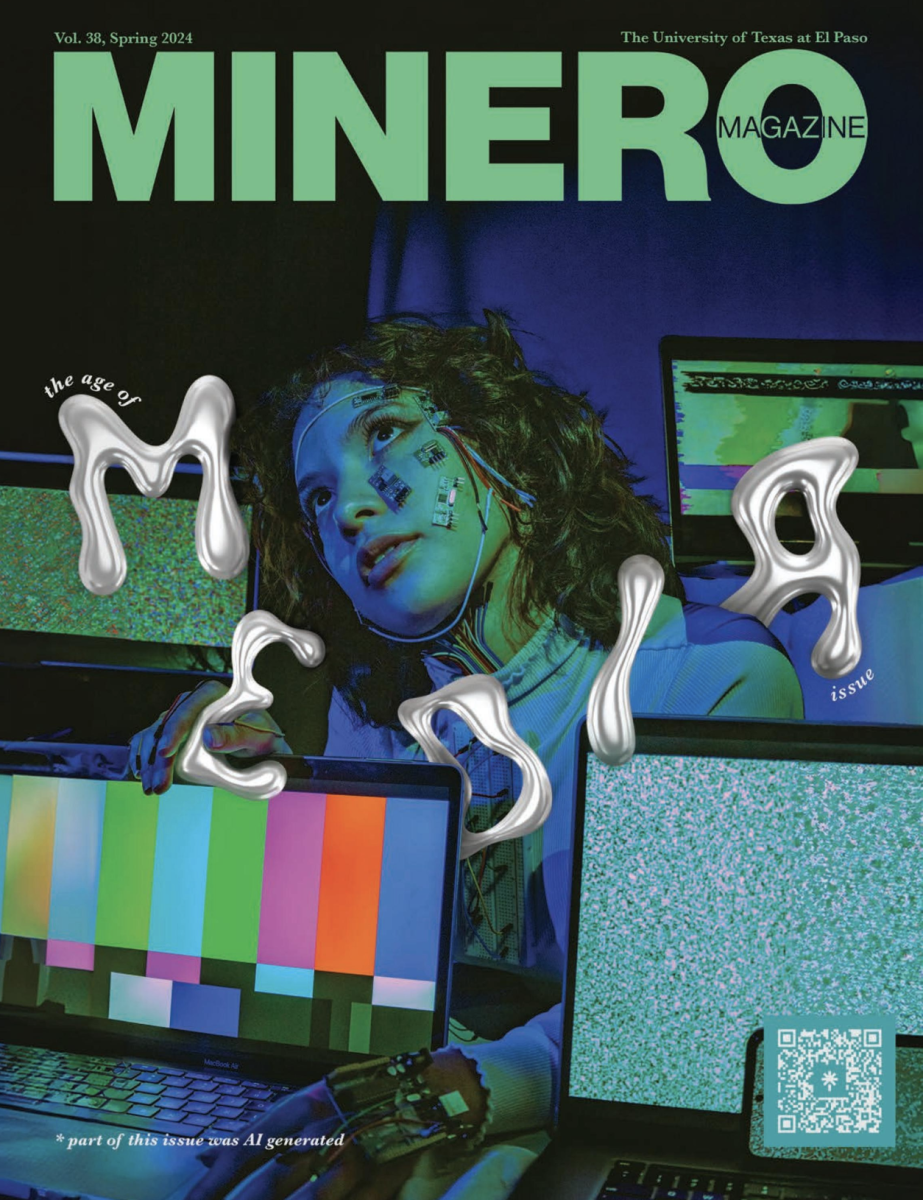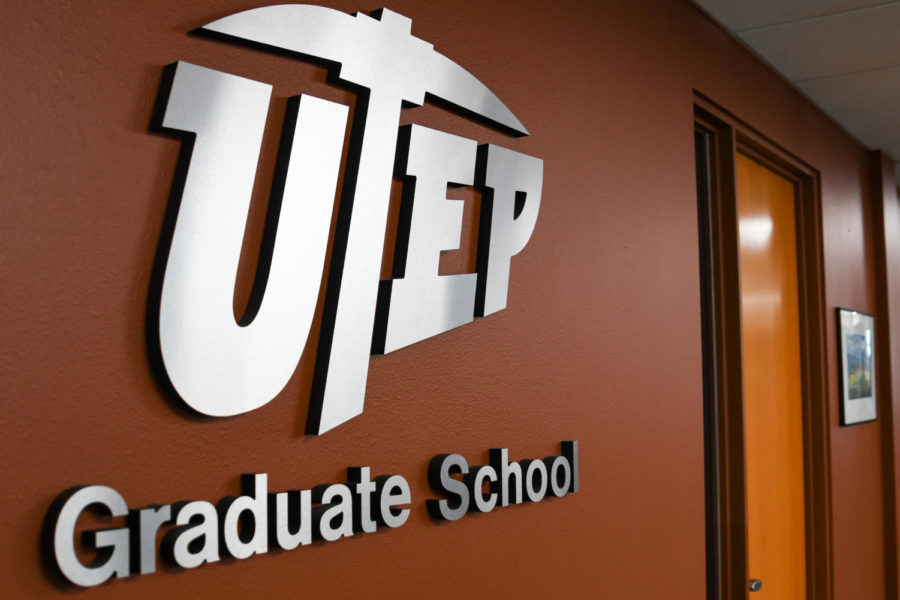Graduate Limbo
Finding a Path to Success
May 10, 2022
Students understand the world of higher education can be confusing, but Assistant Dean of UTEP’s Graduate School, Shannon Connelly Ph.D, and Assistant Director of Outreach and Recruitment, Brenda Barrios, say there is nothing to fear.
With graduation closing in for many students as the semester comes to an end, continuing your education post-undergrad might be on the minds of many.
“The first step is to actually explore the programs,” Barrios said, “you can do so very strategically and quickly by navigating our website.”
Within the last two years, the graduate school has developed an interactive table that allows students to choose keywords and search terms helping determine which of the over 100 programs best fit their interests and qualifications.
Once you find the program that fits you, the Graduate School offices are available for general questions, but if the student has more focused questions the contact information of program directors are available, who are the subject matter experts, along with program details.
Although the Graduate School oversees every program, “every program is different,” Barrios said, their qualifications and application process may vary. Students are encouraged to look into individual programs on the interactive table or to reach out to program directors to fully understand what is required.
“We’re sort of like a hub,” Connelly said, while all students are part of the individual college where their program takes place, they are ultimately part of the Graduate School.
The program directors are a useful resource to prospective students, as they can help to better prepare for required items. For example, a writing sample, “instead of us just telling them, well just submit a document and boom, they will tell them” Barrios explains, “we are looking at this, you know, prompt questions or specific pages.”
UTEP’s graduate school started with static printouts that would be taken to tabling events, presenting information to prospective students about programs available and documents that may be required.
At tabling events Barrios would “reach into a big binder, pull out a sheet and it would have all the master’s programs within the College of Liberal Arts.” Connelly said, recalling the old methods, “but the table is so much easier to use, it’s dynamic.”
Listed on the documents are links to resources, like standardized tests that may be required for specific programs such as the Graduate Record Examination (GRE), the Graduate Management Admission Test (GMAT), the Miller Analogies Test (MAT) or the Pharmacy College Admissions Test (PCAT).
Other information about the application process is present, and lists what documents are required from prospective students. QR codes on the printouts also direct students to the Graduate School’s website, containing the same information.
It is important for students to seek out information for programs they are interested in, as some may be limited in the number of students admitted, according to Barrios and Connelly. Programs also vary in which semesters applications are accepted, some may only allow for strong semesters, like Spring and Fall, and some allow applications year-round.
Student stress is a constant according to Barrios, the Graduate School can alleviate that stress by helping the students to break down the application process, “sometimes they see a big list of things and they realize, ‘I have everything with me, I just need my official transcript’ but they don’t have it,” Barrios said, but because transcripts are internal documents it is easy for the Graduate School to gather that information.
Micaela Castor, a 26-year-old Graduate student still in her first semester, noticed an overwhelming sense of imposter syndrome since she began her journey. A sentiment that current and former-students share. In the beginning she felt like the “new kid”. Echoing the stress Barrios described.
To combat the feeling of imposter syndrome, Connelly cites a colleague that had given a presentation about imposter syndrome and time management, and explains that one of the Graduate School’s missions is to help students that are affected, “you don’t apply and get admitted and then you’re like off to your own devices,” Connelly explains, “we still want to provide you supports that can help achieve success.”
“We want to make sure you start and finish the program,” Barrios said, “and everything in between.”
Once in Graduate School though, Barrios explains, it is less a continuation of Undergraduate coursework and focuses more on individualized and hands-on coursework, “it’s more like real scenarios and real experiences,” Barrios said, continuing she explains the importance of analytical research writing and good communication skills.
Cohorts are a great resource while pursuing a master’s, a person students can reach out to, to see how grades differ from their peers, “everyone has each other’s number,” Castor said, “it’s like your family for two years.”
Things to consider when researching UTEP’s Graduate School are the cost of the degree, and the connections students build with their classmates, “compared to like a bigger school, that’s gonna cost a lot more,” Castor said, “you’re not gonna have a lot of connections.”
Mentors are another helpful resource to graduate students. Mentors can act as a support system or a guiding force for students. Castor, despite being accepted to every graduate program she had applied to, decided to stay at UTEP because of the relationship she had fostered with Associate Professor of Sociology and Anthropology, Aurelia Lorena Murga, Ph.D.
In those two years while in the program, opportunities are abundant. Castor has been working on a COVID-19 Resiliency Project, where she has the opportunity to go to Florida to present her work, and be published all while still in the program, and paid for by the project.
Because UTEP has an R1 classification, a ranking given to doctoral universities with very high research activity, according to The Carnegie Classification of Institutions, Castor stressed the importance of looking into research opportunities, even while completing undergraduate studies. “It gives you opportunities to make your CV better,” Castor said.
Another difference between graduate and undergraduate that Castor points to is the difficulty of the courses. “I didn’t even need to fight for A’s in undergrad,” Castor said, “But for grad school I’m trying to get A’s.”
Castor attributes her survival of the graduate program to the relationship she has to her cohorts and skills learned while in the program, like learning how to read more efficiently, as her program requires much more reading than undergraduate studies.
Castor also works as a research assistant to help finance her degree.
Although, “you need to make sure that’s like really what you want,” Castor said, “because the Master’s is a lot more expensive, it’s a lot more Labor intensive, your mental health can be crap if you don’t adjust really quick.”
“Everybody in grad school has obviously earned their spot there,” Castor said, continuing and encouraging students, “not to be so hard on yourself if you’re not like the top student.”
Since 2019, the Graduate School has implemented student satisfaction surveys, prompting students to answer a five to 10 minute long questionnaire about their experience in the program. Surveys are sent out to current graduate students at the beginning of March, and are open to submissions throughout the month.
Responses to these surveys remain anonymous, and if enough are received from a specific program, an aggregated program-level report can be distributed to its director. Helping students to have a hand in actions taken at the graduate level.
In 2021, the surveys included new engagement and coping questions, with financial well-being scoring low in student confidence. And while physical and mental health did not score as low as expected, the Graduate School understands that the two areas are still areas of concern.
To assist current students who may be worried about the cost of tuition, the Graduate School hired a coordinator for graduate fellowships and awards in January 2022, who is focused on external funding at the graduate level. The Graduate School also works closely in conjunction with the Office of Student Financial Aid, to further educate students on financial literacy and responsible borrowing.
Jesse Singleton, Assistant Director of Student Support for the Graduate School, also works with the Division of Student Affairs to support students through a wellbeing committee, including financial wellbeing.
In 2021, the Graduate School developed a set of core competencies to guide professional development and career development identified as; Communication, Leadership, Collaboration, Ethics and Integrity.
“There’s going to be that demand across the board that one can be both like a really good leader, but also a really good team member,” Connelly said, explaining the significance of the core competencies.































